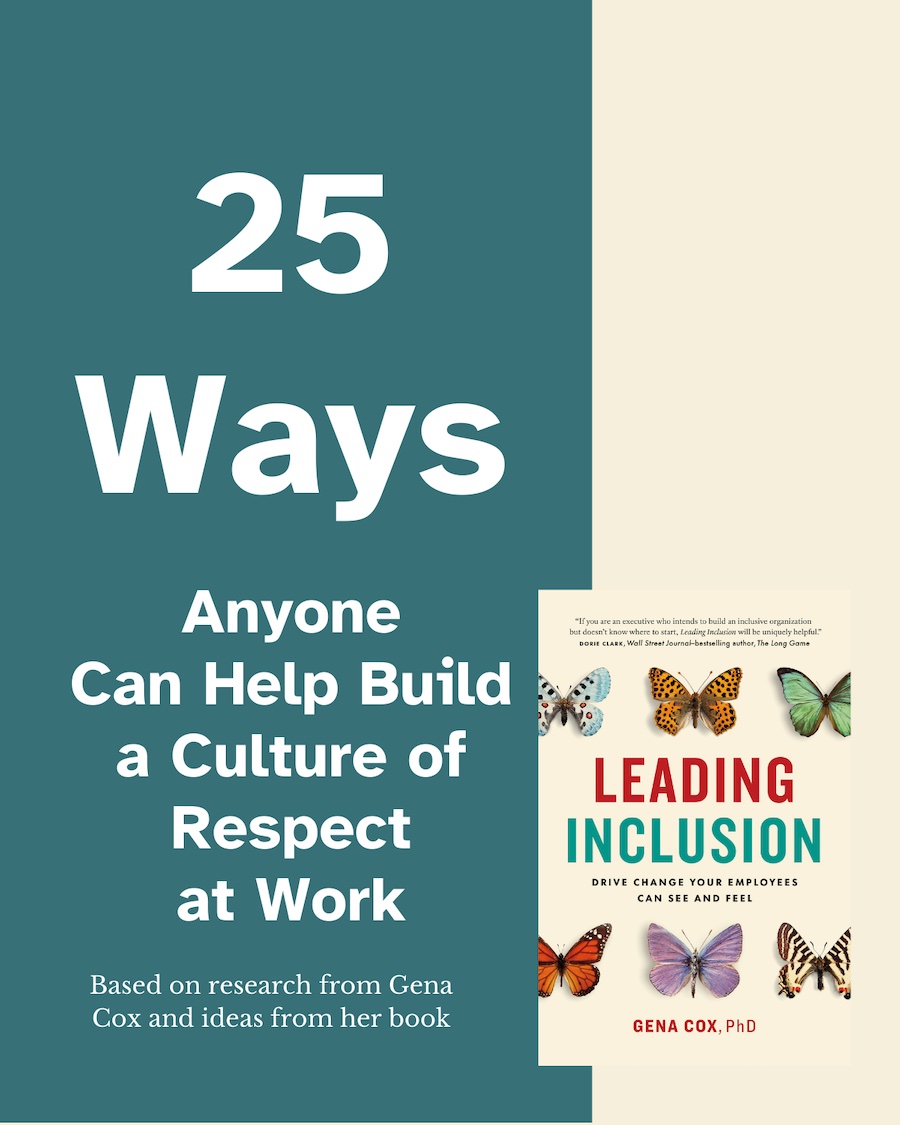Is your workplace inclusive? Ask these 10 questions to find out.

The 10 questions below can function like a “reality check” to help you accurately assess employee experience in your organization.
- Employee day-to-day experience OK?: Do I understand the reality of the day-to-day experience of my employees?
- Managers effective? What kind of relationship do most employees have with their managers?
- Speaking up: Is it OK for employees to say what they are thinking and experiencing, or is speaking up a taboo?
- “Friends of” culture? Do we have a strong “insider versus outsider” culture where only certain people are “in the know” while others feel like they only hear about decisions after the fact? Sometimes this is manifested as “Friends of … [insert the name of the person who holds the power].”
- HR department safe? Do employees feel safe seeking help from your HR department?
EEO-1: Have you ever read and interpreted your company’s EEO-1 report? What did you conclude? - Do execs meaningfully support ERGs? If you have employee resource groups (ERGs), do members of the executive team act as executive sponsors? If so, are they actively engaged, or do they only function to approve spending and events?
- Jerks allowed? Are there people in leadership or other roles of influence who regularly behave like jerks but whose actions are tolerated because they “know someone,” because they “bring in big deals,” or because “they know where the bodies are buried?”
- Customers in charge? Employee abuse by customers/clients/patients: Do you take action to support your employees when a customer or client is abusive?
- Speaking for “the race/the ethnicity/the gender”? When issues of identity arise, do you assume that only people in the target identity group care about the issue, and do you address the issue as if the target group is the only one that will benefit from your action?
- Are you leading the conversation? Would employees say that you lead the conversation and culture to create an inclusive culture, or are they waiting for you to do so?
Posted in Inclusion, Leading/Mgmt., Respect
Tags: Diversity, equity, gena cox, Inclusion, leading inclusion, outcomes, questions















